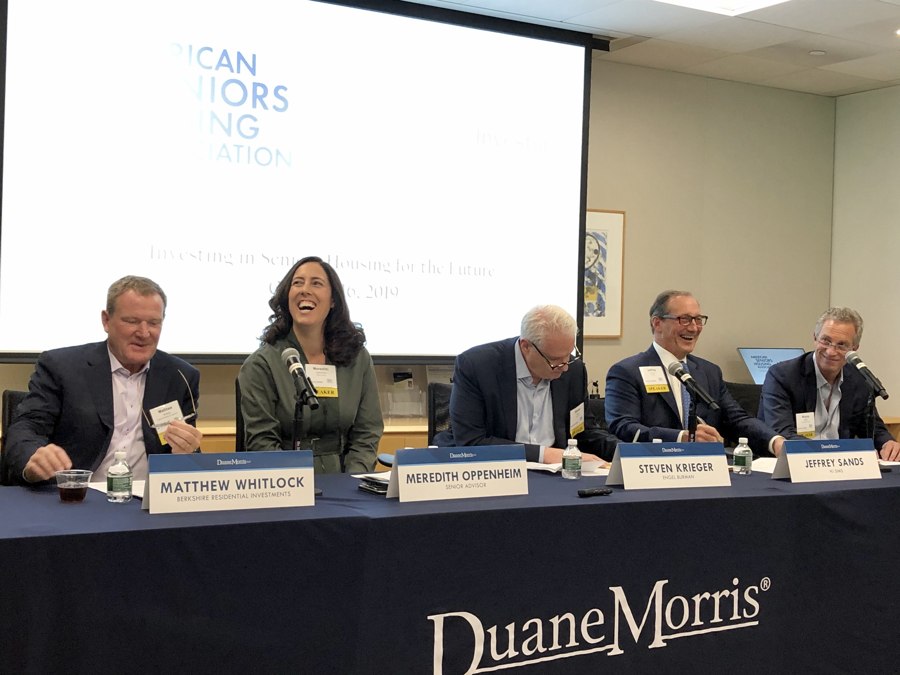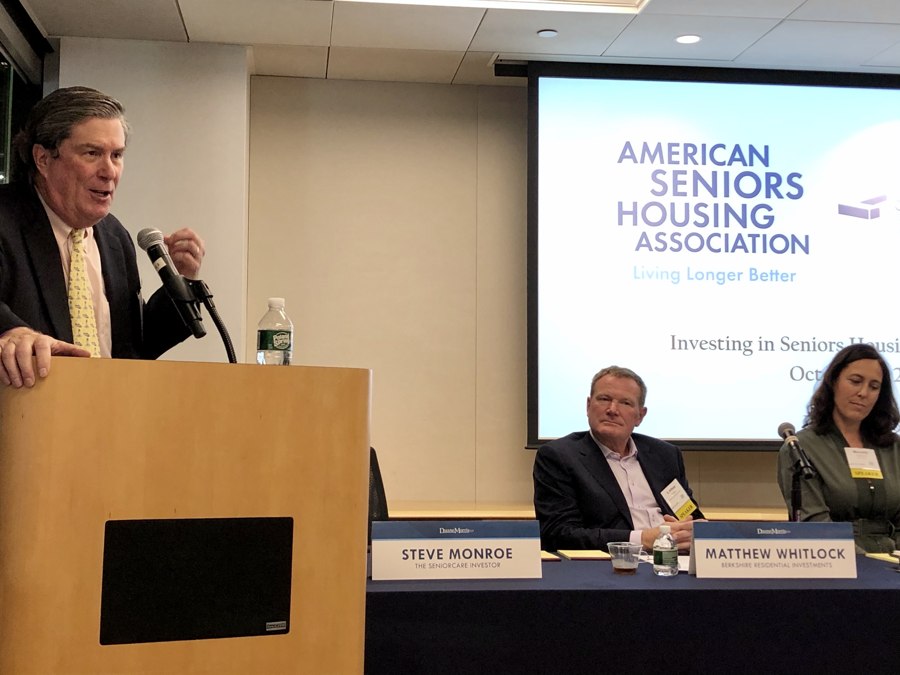On October 15th, subscribers to The SeniorCare Investor and members of the American Seniors Housing Association (ASHA) met at the Duane Morris offices in New York City to discuss a topic relevant to many of our readers: the future of the seniors housing market in the 2020s and beyond. Where do you begin on a topic like that? Well, Steve Monroe led a panel discussion with Wayne Kaplan of Premier Senior Living Group, Matthew Whitlock of Berkshire Residential Investments, Jeffrey Sands of HJ Sims, Steven Krieger of Engel Burman and Meredith Oppenheim, an industry expert and alum of Sunrise Senior Living and Ventas. The conversation was wide ranging, but here were some of the key takeaways:
Give the Boomers What They Want
To attract Baby Boomers, our panel believed that choice and flexibility will be crucial. That means doing away with set dining times and paying for only the amenities, care and services you use. Using data and analytics to find out what potential residents really want will likely be part of the solution too. Of course, the industry will need to figure out how to underwrite that operational shift, but they have a few years.
Real Estate Becoming Secondary to Operations
There is a debate going on as to whether seniors housing is more of a real estate-focused business, or an operations-focused one. That is obviously different for independent living compared with assisted living. Wherever the split between real estate and operations currently stands, what about in the future? Our guess, and the guesses of most on our panel, is that services will become a much more substantial part of the business and be the main driver of a community’s value, to investors and lenders, at least. Home- and community-based healthcare services will surely keep improving their product, keeping more seniors in their homes. Technology should help with that too. To counter that, seniors housing will have to offer even more of an incentive for people to move into their communities. That could mean heading more in the “healthcare” direction, where you can see your doctor, or get dialysis treatment, and still have a thriving social life, which alone can have a huge positive impact on your health.
Invest in People
The whole panel was in agreement on this point. Particularly for your Executive Directors and other Director roles, operators will have to do their best to retain their best people, which has been proven to have a direct effect on the community’s operations. Culture is important to improve retention, of course, but dollars speak too. The industry also needs to work on lessening the stigma around working in seniors housing, especially if someone can earn the same amount at perhaps an “easier” job. That means emphasizing seniors housing as a career, and not just a job. There should also be a push to attract younger workers. Easier said than done. According to the panel, staffing was the biggest issue facing the industry today, including both finding qualified staff and paying them too. It’s true that we are in a historically tight labor market, but what happens when those long-awaited demographics finally hit? The industry will need to find a lot more RNs, LPNs, kitchen staff, housekeeping staff, etc…



